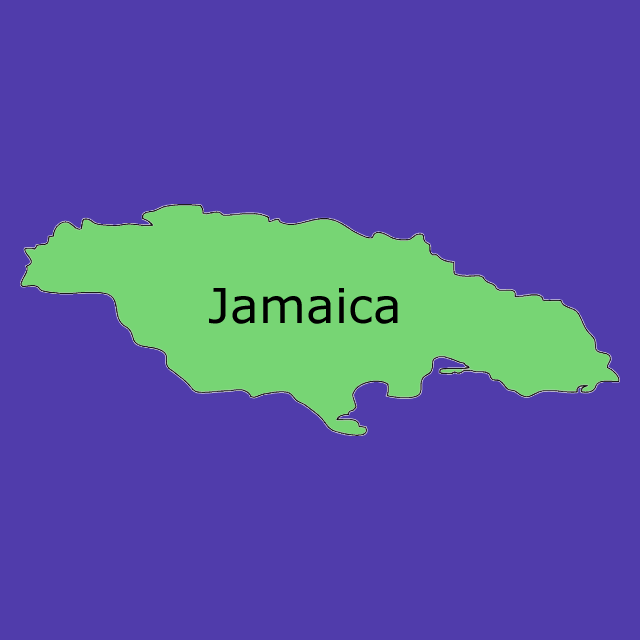Authored by: Nadia Howe Attorney-at-Law Jamaica


Nadia Howe is an Attorney licensed to practice in Jamaica, she may be contacted at nadianhowe@gmail.com
History of the Law on Ganja in Jamaica
The Dangerous Drugs Act of 1924 made the possession and use of ganja a criminal offence.
Any individual found in possession of ganja (in Jamaica, cannabis is referred to as ganja) could be sentenced to a fine or imprisonment or both depending on the circumstances of the offence.
Although classified as a dangerous drug under the law, ganja was a widely used commodity for the culture of the island’s inhabitants, more specifically, Rastafarians. Rastafari is a Jamaican indigenous religious movement that developed in the 1930s in which ganja is used as a sacrament. The movement focused largely on black liberation and empowerment and was therefore considered seditious and anti-government in colonial Jamaica. Criminalizing the use of ganja under the Dangerous Drugs Act, lead to the widespread persecution and arrests of many Rastafarians.
An attempt was made to challenge the constitutionality of The Dangerous Drugs Act. In 1997 Dennis Forysthe, a Rastafarian and Attorney-at-Law was arrested for illegal possession of marijuana. He petitioned the Supreme Court for a declaration that his constitutional rights to freedom of conscience in the practice of his religion had been infringed and further contended to the beneficial effects of ganja both medically and economically. His submissions were rejected by the Court primarily out of restrictions on Constitutional rights in the interest of public health and the protection afforded to the Dangerous Drugs Act by a “savings law” clause which protected laws in existence when the country gained political independence in 1962 against constitutional challenge.
Chief Justice Wolfe in his reasoning stated that arguments relating to possible economic benefits which could be derived from legalizing ganja would be more properly advanced before Parliament to convince legislators on the question of legalizing ganja.
Such arguments were ultimately advanced before Parliament. Although ganja has not been fully legalized, eighteen years after Forysthe v The Director of Public Prosecutions and The Attorney General of Jamaica (1997) the Dangerous Drugs (Amendment) Act of 2015 (the “Amendment Act”) was passed which decriminalises possession of two ounces or less of ganja, making it a non-arrestable, ticketable offence instead.
Rights available to Rastafari: Ganja as a Sacrament, Exempt Events
One of the most notable amendments however, are the rights granted to Rastafarians to use ganja as a sacrament. The Amendment Act provides that the Minister of Justice may authorize any person who is eighteen years old or over and who is an adherent to the Rastafarian faith or an organization comprised of Rastafarians, to cultivate on lands designated by the Minister. This cultivation must be for the use of ganja for religious purposes as a sacrament in adherence to the Rastafarian faith.
The Minister of Justice can also declare an event to be an “exempt event” once they are promoted or sponsored by Rastafarians. At such events no person would be liable to be arrested, detained or prosecuted regarding the conveyance of ganja, possession or smoking of ganja. Some of these “exempt events” have been held, for example Stepping High and Rootzfest, both taking place in Negril.
The International Opinion: Jamaican Sacramental Ganja
Jamaica is signatory to various conventions or treaties such as The Single Convention on Narcotic Drugs of 1961 as amended by the 1972 Protocol, the Convention on Psychotropic Substances of 1971 and the United Nations Convention against Illicit Traffic in Narcotic Drugs and Psychotropic Substances of 1988. In order to remain compliant with these international drug conventions, Jamaica under the Amendment Act, has committed to a medical, therapeutic and scientific ganja industry. The United Nations International Narcotics Control Board or INCB is an independent body established by the Single Convention on Narcotic Drugs of 1961 to help ensure compliance with these treaties. The INCB is not in agreement with Jamaica’s decision to make ganja legal for sacramental purposes by adherents of the Rastafarian faith. In their 2017 annual report, the INCB criticized Jamaica for legalizing cannabis for religious use stating that “only the medical and scientific use of cannabis is authorized, and that use for any other purpose, including religious, is not permitted.” What measures then, if any, can the INCB take against Governments’ that are not complaint with international drug treaties? Under the 1961 Convention, the INCB has the right to call upon the Government concerned to adopt remedial measures, failing which, it may call the attention of the Economic and Social Council and the Commission on Narcotic Drugs to the matter. The INCB has already invoked these articles against a limited number of States, one such State being Afghanistan in the year 2000 to combat the widespread cultivation of opium poppy in the country.
The Regional Opinion: Rastafari and the Ganja Industry
In Antigua and Barbuda, Prime Minister Gaston Browne recently announced plans of the government to allow for the use of marijuana for medicinal purposes. Minister Browne stated that the Rastafarian community has championed the many uses of cannabis and asserted that the herb is utilised as a sacrament in their rituals, celebrations, and worship. In this context, he stated, his administration is moving to amend legislation regarding cannabis. He also issued a genuine apology to the Rastafarian community and asserted that Rastafarian sacramental and spiritual use be acknowledged. He urged that the Rastafarian community “be given a stake in production and benefits to be derived from medicinal and other uses going forward.”
Is there any Economic Benefit in Cultivating Sacramental Ganja?
It is a progressive step forward that the adherents of the Jamaican indigenous and uniquely different religious form, Rastafari, are now able to apply to the Ministry of Justice to cultivate ganja for the use as a sacrament. It will also be interesting to see the role these international sanctions may play in Jamaica’s current legal landscape. The question must be asked though, what commercial gains can Rastafarians derive from these sacramental rights granted under the Amendment Act? To have just been afforded sacramental rights does not equate to real economic or commercial gain. Antigua and Barbuda, a separate Caribbean State, has acknowledged that the Rastafarian community is entitled to a stake in the production and commercial benefits from the ganja industry. The question remains then whether Rastafarians can derive economic enablement through the current legal framework?
Economic Empowerment through the Cannabis Licensing Authority?
The economic or commercial gains to be derived from ganja from its sale is regulated by the Cannabis Licensing Authority (“CLA”). The CLA is a body established to make the regulations and further ensure these regulations comply with the international treaty obligations. Under the Dangerous Drugs (Cannabis Licensing) Regulations (the “Regulations”) several licenses are available that grants the holder of the license, the ability, amongst other things, to sell and thereby derive some economic benefit from ganja. The Regulations also outlines the applicants who may apply for licences. One of these applicants includes a cooperative society or a company incorporated under the laws of Jamaica.
There is more strength in numbers. To secure economic enablement, Rastafari, or even just traditional or indigenous small farmers, could form one collective voice and body or perhaps several collective bodies. This collective body or bodies could take the form of a Co-operative, several Co-operatives or a Company and an application can be made to apply for one or several of the many licenses under the Regulations. These licenses include a cultivator’s license, a processing license, a transport license, a retail license and a research and development license. Smaller traditional farmers like Rastafarians may face a few constraints, one such constraint being the fees involved in securing a license. The fees are quoted in United States currency and do not necessarily reflect the economic realities of the ordinary Jamaican citizen, much less, smaller marginalized groups such as Rastafarians or other smaller scale farmers. An application fee must be paid, ranging from USD $300-$500 dollars. Another fee is payable on the issue of the license ranging from USD $2000- $10,000 (note briefly that the fees for licenses with separate tiers are further broken down per square meter) and a security bond is payable (depending on the license type) ranging from USD $1000-3000.
Capital, like that listed above, will invariably be difficult for Rastafari or other smaller scale farmers to procure. However, the Regulations do make special provision for the payment of fees, providing that the CLA may, in respect of any category of license, waive the payment of any fee or security bond or defer the payment for a specified period. This option could be pursued, and an application could be made to have the fees or security bond waived or at the least very least deferred for a particular time period. It must be remembered that licenses granted under the jurisdiction of the CLA is in accordance with medical, therapeutic and scientific purposes only and does not encompass sacramental use.
A Sacramental Ganja Industry or Economic Empowerment through the CLA?
What though, about the development of a sacramental industry, or at the very least a local sacramental industry where those exercising their right to cultivate their sacrament are able to benefit commercially from their sacrament. Or, is this even possible? Does attempting to derive a commercial benefit from ganja as a sacrament mean that ganja is no longer a sacrament? In other words, does an added economic benefit negate the religious connotation of ganja as a sacrament?
Sacramental use seems to be taking on both a global and regional trend. In Canada for instance Leafly reported that Davidacus Holmes of Jamaican descent and founder of the Sanctuary of the Rastafarian Order Ministry, Canada’s first registered Rastafarian church, is seeking a full religious exemption for the production, processing, and distribution of cannabis.
It must be reiterated that the law permits adherents of the faith, through the Ministry of Justice, to be able to cultivate ganja for religious purposes. However, as a small State, will Jamaica have to fight for its autonomy under international scrutiny to adhere to convention obligations?
Rastafari and smaller scale farmers in general must ultimately ask themselves, how do I become economically empowered through these laws that have decriminalized ganja and established a regulated medical cannabis industry? Can this empowerment be secured through the current legal framework in place right now for ganja, that is, by way of sacramental rights or the CLA? If Antigua and Barbuda, a separate Caribbean State can acknowledge that Rastafari is entitled to a stake in the ganja industry, why is it that Jamaica, where Rastafari originated, cannot do the same? Whatever differences may exist in the Rastafari community should and must be set aside. Collective voices to face these issues are stronger than none. Then, initiative must be taken to secure economic empowerment through this growing industry, which growth can be credited, in large part, to the international recognition of ganja as a symbol of reggae music and the Rastafarian movement.




